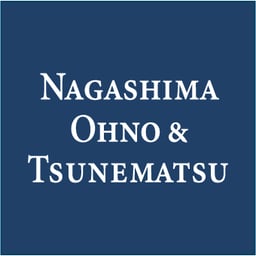News and developments
Shareholder Meeting Digitalization in Japan
I. Introduction
While discussions about the digitalization of shareholder meetings have been gradually increasing in recent years, the COVID-19 pandemic has drastically accelerated the digital movement in Japan. On June 16, 2021, legislation came into force permitting listed companies to hold exclusively virtual shareholder meetings. Similarly, legislation allowing the electronic distribution of shareholder meeting materials is scheduled to enter into force on September 1, 2022.
II. Commencement of Exclusively Virtual Shareholder Meetings
Since the Companies Act of Japan assumes that a shareholder meeting will be held in a physical venue, holding an exclusively virtual shareholder meeting has generally been considered to be impermissible. As such, the Japanese government amended the Industrial Competitiveness Enhancement Act to add provisions superseding the Companies Act to allow a listed company to hold an exclusively virtual shareholder meeting. Those provisions took effect on June 16, 2021.
Under the amended Industrial Competitiveness Enhancement Act, a listed company may hold an exclusively virtual shareholder meeting if: (i) the company has completed a specified procedure for confirmation by the Minister of Economy, Trade and Industry and the Minister of Justice that the company has satisfied certain conditions prescribed in the relevant ministry ordinances; and (ii) the company has amended its articles of incorporation to state that a shareholder meeting may be held as a ’shareholder meeting without a designated location.’ As a provisional measure, for a period of two years after June 16, 2021, a listed company may hold an exclusively virtual shareholder meetings, even if it has not amended its articles of incorporation to permit ‘shareholder meeting without a designated location’, so long as it obtains the confirmation of the Ministers mentioned above.
As of March 31, 2022, however, less than 150 listed companies had changed their articles of incorporation to provide for exclusively virtual shareholder meetings. It is thought that one of the main reasons why most listed companies are not proactive in changing their articles of incorporation is that standard practice for an exclusively virtual shareholder meeting has not been determined. In 2021, while more than 400 listed companies held hybrid shareholder meetings (i.e., shareholder meetings attended by board members and shareholders both in-person and online or through other virtual means), only three listed companies held virtual-only shareholder meetings. The fact that Institutional Shareholder Services Inc. (ISS), a proxy advisory firm, recommended to vote against proposals to change the articles of incorporation to enable holding an exclusively virtual shareholder meeting could also have been influential on listed companies’ decision making. It appears that, despite the legislative changes made by the Japanese government, there may still be some time until exclusively virtual shareholder meetings become commonplace in Japan.
III. Electronic Distribution of Shareholder Meeting Materials
Under the current Companies Act, a company is in principle required to physically deliver shareholder meeting materials (i.e., reference documents, voting forms, annual reports and financial statements) and a convocation notice to its shareholders in advance of the shareholder meeting itself. As a special rule, the Companies Act allows a company to make some of the information to be described in the shareholder meeting materials available on its website by specifying that it may do so in its articles of incorporation. In practice, most listed companies utilize this method. However, companies are not permitted to electronically provide certain important information such as the meeting agenda. While it is technically possible for a company to electronically deliver all of the relevant shareholder meeting materials to shareholders who have provided their consent to electronic delivery in advance, it is very uncommon for a listed company to seek shareholders’ consent for electronic delivery because of the typically large number of shareholders.
As such, the Japanese government enacted a bill in 2019 to amend the Companies Act to permit a company to make all information to be described in shareholder meeting materials available on its website without obtaining the consent of its shareholders if the company has included the use of this electronic method in its articles of incorporation. That amendment is scheduled to take effect on September 1, 2022. For listed companies that make the necessary amendment to their articles of association before the new legislation comes into force, they will be deemed to have amended their articles of incorporation as of September 1, 2022 and will be required to make the information to be described in shareholder meeting materials available on their websites for shareholder meetings to be held after March 1, 2023. However, if a shareholder requests the physical delivery of shareholder meeting materials, the company will be required to comply with that request and provide physical copies thereof to that shareholder.
Under the new system, the directors of a listed company are required to make the information to be described in shareholder meeting materials available on the company’s website for a period starting from three weeks prior to the date of the shareholder meeting or the date that the convocation notice of the shareholder meeting is dispatched (whichever is earlier) until three months after the relevant shareholder meeting. As far as listed companies are concerned, they will be required under the rules of the stock exchange to use its efforts to make shareholder meeting materials as well as a convocation notice electronically available at a date earlier than the deadline under the Companies Act (i.e., three weeks prior to the shareholder meeting).
The current Companies Act requires a company, absent any share transfer restrictions, to provide shareholder meeting materials to its shareholders no later than two weeks prior to a shareholder meeting. The reforms discussed in this article will be beneficial not only for the company insofar as it will be able to save costs and time for printing and delivering shareholder meeting materials, but also for shareholders in a sense that they will be able to review the shareholder meeting materials earlier and have more time to conscientiously consider the agenda for the relevant meeting.
View original article here.
